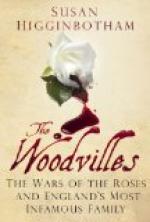When I matriculated in the University of London and became a student in this place, my professors were Professor Goodwin, Professor Church, Professor Henrici, Professor Groom Robertson, and Professor Henry Morley. I remember all these, though, if they were alive, I do not think that any of them would remember me. The indescribable exhilaration, which must be familiar to many of you, of leaving school and entering college, is in great part the exhilaration of making acquaintance with teachers who care much about their subject and little or nothing about their pupils. To escape from the eternal personal judgements which make a school a place of torment is to walk upon air. The schoolmaster looks at you; the college professor looks the way you are looking. The statements made by Euclid, that thoughtful Greek, are no longer encumbered at college with all those preposterous and irrelevant moral considerations which desolate the atmosphere of a school. The question now is not whether you have perfectly acquainted yourself with what Euclid said, but whether what he said is true. In my earliest days at college I heard a complete exposition of the first six books of Euclid, given in four lectures, with masterly ease and freedom, by Professor Henrici, who did not hesitate to employ methods of demonstration which, though they are perfectly legitimate and convincing, were rejected by the daintiness of the Greek. Professor Groom Robertson introduced his pupils to the mysteries of mental and moral philosophy, and incidentally disaffected some of us by what seemed to us his excessive reverence for the works of Alexander Bain. Those works were our favourite theme for satirical verse, which we did not pain our Professor by publishing. Professor Henry Morley lectured hour after hour to successive classes in a room half way down the passage, on the left. Even overwork could not deaden his enormous vitality; but I hope that his immediate successor does not lecture so often. Outside the classrooms I remember the passages, which resembled the cellars of an unsuccessful sculptor, the library, where I first read Romeo and Juliet, and the refectory, where we discussed human life in most, if not in all, of its aspects. In the neighbourhood of the College there was the classic severity of Gower Street, and, for those who preferred the richer variety of romance, there was always the Tottenham Court Road. Beyond all, and throughout all, there was friendship, and there was freedom. The College was founded, I believe, partly in the interests of those who object to subscribe to a conclusion before they are permitted to examine the grounds for it. It has always been a free place; and if I remember it as a place of delight, that is because I found here the delights of freedom.




